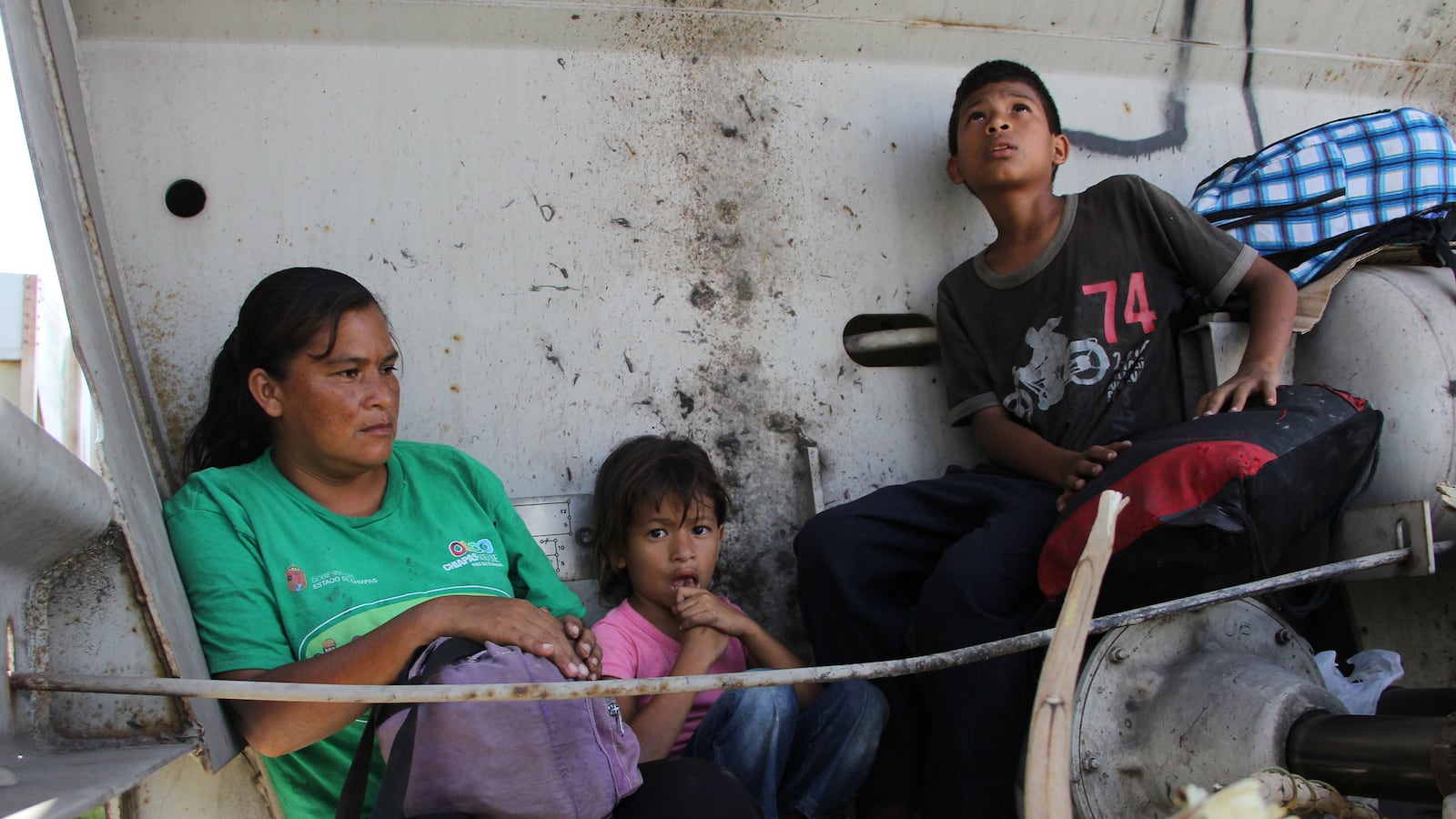The angry protestors who made headlines recently when they confronted three busloads of Central American mothers and their children in Murrieta, California, reflect widespread fears that many now have about uncontrolled immigration. But we should also remember that as a nation we have dealt with such fears of newcomers before.
Seventy-five years ago in The Grapes of Wrath, his classic 1939 Great Depression novel, John Steinbeck depicted a similar confrontation between Californians and down-and-out arrivals to their state. The difference is that in Steinbeck’s book the targets of widespread anger were not immigrants. They were migrants from the Dust Bowl of the South and Southwest who had come to California when drought made their lives as farmers impossible.
“What happens when they come here with diseases and can overrun our schools? How much is this costing us?” a Murrieta protester was quoted as asking the town’s mayor this month.
In The Grapes of Wrath Steinbeck has an angry Californian use almost identical language to say of the Dust Bowl migrants, “They bring diseases, they’re filthy. We can’t have them in the schools. They’re strangers.”
Steinbeck was no armchair novelist. He knew the situation he was describing firsthand as a result of a series of articles about migrant workers that he wrote in 1936 while reporting for the San Francisco News.
In The Grapes of Wrath, Steinbeck distilled his personal experience into the story of a single family, the Joads, as they struggle to find a new life in California after being forced to leave their small farm in Oklahoma. The Joads have always been hard workers. Being forced into poverty is a shock to them, and they are initially set back on their heels. When they get on the road, they find their place of birth is now an epithet. They have become Okies, not Oklahomans.
In Steinbeck’s novel, temporary relief comes for the Joads at a government camp for migrants in Weedpatch, California. There the Joads find shelter and a chance to regain their dignity. They can take hot showers and use a toilet. The problem is that while the camp at Weedpatch can provide the Joads with a place to stay, it cannot provide them with steady work.
At the end of The Grapes of Wrath, the Joad family has left Weedpatch and is struggling to survive with much less money than when it began its journey. The older Joads—two grandparents and the father of the family—have died. The future is now in the hands of Ma Joad and her children. Steinbeck holds out the hope that unions and the capacity of people like the Joads to endure hardship will make their future better, but neither in Steinbeck’s novel nor in the 1940 film version of it, which John Ford directed and Henry Fonda starred in, do we see a clear resolution of the Joads’ situation.
The New Deal does not ride to their rescue. In the period before Pearl Harbor, Steinbeck and Ford never imagined that the solution to the work problems of families like the Joads would come from World War II and the rise of California’s defense industries. During the war years, America’s unemployment dropped from 14.6 percent in 1940 to 4.7 percent in 1942 to 1.2 percent in 1944.
What will happen today with the immigration crisis in the Southwest remains unclear. The 57,000 new Central American arrivals have caused a backlash that is not confined to the states that border Mexico.
For now, Congress may content itself with closing the loophole in the 2008 human trafficking law that prevents rapid deportation of unaccompanied minors who come from countries other than Mexico or Canada. Closing the loophole is the essence of the immigration legislation proposed by Texas Republican Senator John Cornyn and Texas Democratic Representative Henry Cuellar.
There is, however, a precedent worth considering. It is the precedent established in 1959 when Fidel Castro took control of the Cuban government following the overthrow of the dictatorial Fulgencio Batista regime. In the first two years of Castro’s rule, more than 50,000 Cubans fled to the United States, and by October 1962, when the Cuban missile crisis forced President Kennedy to place a quarantine on the island, an estimated 155,000 Cubans were in this country.
The United States dealt with this influx of immigrants with impressive speed. In December 1960 the federal government established the Cuban Refugee Emergency Center in Miami, and months later one of the first actions taken by President Kennedy on assuming office was to order the secretary of Health, Education, and Welfare to undertake a Cuban Refugee Program.
Voluntary agencies, such as the National Catholic Welfare Conference and the Church World Service, helped the government cope with the growing number of Cuban refugees, even finding families who would give them shelter. As a result, the Cubans got a welcome that so far has been denied those fleeing the violence in the Honduras, Guatemala, and El Salvador.
Nicolaus Mills is professor of American Studies at Sarah Lawrence College and author of The Triumph of Meanness: America’s War Against Its Better Self.






